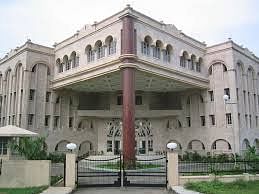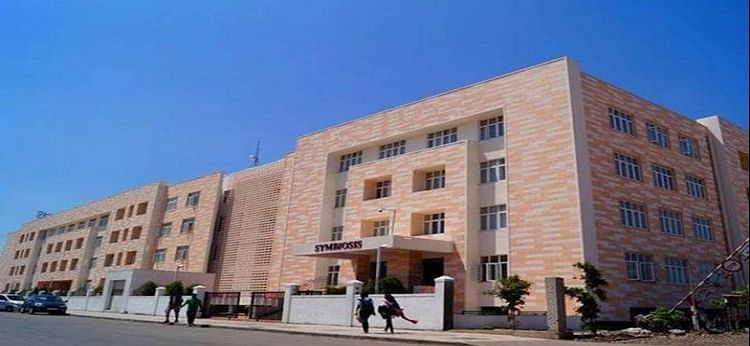Is being a Judge your dream career option? Check out the complete step by step process on how to become a Judge, Eligibility, Exams, Skills Required and Salary in 2023.
A judge handles all the court proceedings and is involved in judgment for a case either alone or as a panellist. The power and responsibility that comes with this profession are highly respected and expected to be fair and impartial in every case they handle. The judge's salary in India ranges from INR 50,000 to 2,00,000 per month.
To become a judge in India, a candidate must complete their graduation in law, complete seven years of legal service and appear for judiciary service examinations. Currently, India has around 1114 judges employed in different courts of which 840 are permanent judges and the remaining are considered as additional judges.
Table of Content
- How to Become a Judge in 2023?
- Who is a Judge?
- What does a Judge do?
- Skills Required to Become a Judge
- Types of Judges
- Judge Salary in India
How to Become a Judge in 2023?
Becoming a Judge in India can be a very challenging and lengthy process that involves a lot of dedication and commitment. If you are passionate about becoming a judge, the following steps can guide you in the process.
- Step 1: Enroll in a Law School
- Step 2: Qualify for the Judicial Service Examination
- Step 3: Meet the Eligibility Criteria
- Step 4: Get Appointed as a State or District Court Judge
Step 1: Enroll in a Law School
Getting a bachelor’s degree or enrolling for a law school can be done in two ways. The minimum requirement for most of the judge roles is either a 3-year LLB or a 5-year LLB course. Additionally, pursuing an LLM or a PhD in Law can enhance the chances and make the candidates eligible for higher positions. Below are the details of the law courses:
List of Undergraduate Law Courses
Given below is the list of law courses offered by various colleges and universities in India along with the top colleges and fee details:
|
Courses |
College |
Average Fees |
|
LLB |
National Law School of India University, National Law University, Symbiosis Law School |
INR 85,000 PA |
|
Bachelor of Law in Intellectual Property Law |
National Law School of India University, Symbiosis Law School, Nalsar University of Law |
INR 1,80,000 PA |
|
BA+LLB |
National Law University, West Bengal National University, Army Institute of Law |
INR 2,10,000 PA |
|
BBA +LLB |
LPU, Symbiosis Law School, Ramaiah College of Law |
INR 2,50,000 PA |
|
BCom+ LLB |
Ramaiah College of Law, BMS College of Law, Amity Law School |
INR 2,50,000 PA |
|
BSc LLB |
Gujarat National Law University, Parul University, SOA National Institute of Law |
INR 2,00,000 PA |
|
BTech LLB |
MATS University, SOA National Institute of Law, Kurukshetra University |
INR 2,00,000 PA |
List of Post-Graduate Law Courses
After graduation, the aspirants can opt to pursue a post-graduate degree in law to improve their career prospects. Given below are the list of postgraduate law courses:
|
PG Law Courses |
Top Colleges |
Average Fees |
|
LLM |
West Bengal National University of Juridical Sciences, Indian Law Institute, NALSAR University of Law |
INR 2,00,000 PA |
|
LLM Criminal Law |
Indian Law Institute, National Law University, Symbiosis Law School |
INR 4,00,000 PA |
|
LLM Corporate Law |
NALSAR University of Law, O.P. Jindal Global University, Osmania University |
INR 2,50,000 PA |
Read More: Law Courses After 12th
Step 2: Qualify for the Judicial Service Examination
Once completion of the LLB Course, the candidate should apply for the Judicial Service Examination and clear multiple levels to become a Judge. Judicial Service examination or Provincial Civil Service Judicial Exam PCS (J) is conducted by the state government and Union Public Service Commission for the role of legal Judge and Magistrate.
The candidate needs to pass three levels of examination followed by the interview process for the Lower Judicial Services and Higher Judicial Services Examination.
Level 1: Preliminary Examination
- Preliminary exams are the screening level to appear for the main examination.
- The exam will be conducted in an offline mode with multiple-choice questions. The minimum passing score for general candidates is 60 and for reserved candidates is 55. Evaluation is based on the general knowledge, aptitude, and personality of the candidate.
Level 2: Main Examination
- The main examination is based on descriptive-type questions and the candidates who have qualified for the prelims will appear for mains.
- The minimum passing score varies from state to state for general and SC/ST categories.
- Evaluation is mainly based on law subjects.
Level 3: Viva-Voce or Personal Interview
- The marks scored in the personal interview will be considered for the final score calculation.
- This will act as a final score for the selection of the candidate for the role of civil or district court judges
Also, Check: Steps to Become a Lawyer
Step 3: Meet the Eligibility Criteria for Judiciary Exams
Furthermore, the aspirants can also apply for Civil and District court Judges by clearing the following exams, Lower Judicial Services & Higher Judicial Services. In order to appear for the Lower and Higher Judiciary Service Examination, a candidate must meet the following eligibility criteria
Lower Judiciary Service Examination (LJS)
This examination is conducted for the purpose of recruiting civil judges for state courts. State Public Service Commission or the High Court generally conducts the exam. To be eligible for the LJS, the candidate must fulfil the following criteria:
- The Candidate must have a 3-year or 5-year integrated LLB degree.
- The age limit to appear for the exam may vary depending on the state. The ideal age for a candidate to appear for this exam should be at least 21 and not more than 35 years of age. There are some relaxations in the upper age limit for candidates from OBC/SC/ST/PWD as per state norms
Higher Judiciary Service Examination (HJS)
This examination is conducted to appoint civil judges or advocates in district courts. HJS is generally conducted by the state public service commission or the high court. The eligibility criteria and age limit may vary from state to state. Given below are the common eligibility criteria for HJS exams:
- The candidate must be an advocate practising law in the court for a minimum of 7 years.
- The age limit to apply for these exams must be a minimum of 35 years to 45 years of age.
Step 4: Get Appointed as a State or District Court Judge
The candidates will be appointed as state or district court judges based on the final score in the judiciary service examination and other factors such as experience, qualification, political and cultural awareness, etc. After serving as a judge for some years, the judges can apply for the position of high court and supreme court judge position, which is considered one of my most prestigious positions for law aspirants.
How to Become a High Court Judge?
High Court Judges are responsible for presiding over the cases in the high court of the particular state and offer judgements. High Court Judges are appointed by the chief justice of India and the governor of the concerned state.
- To become a high court judge, a candidate must have served as an advocate for a period of ten years or hold a judicial office for the same duration.
- Generally, the high court handles the state’s cases and there are around 25 high courts in India.
- The two main eligibility criteria to become a high court judge is that the candidate must be an Indian citizen and should hold an LLB or LLM Degree.
- The candidate must be atleast 45 years of age to become a High Court Judge.
- The candidate must have strong proficiency in the local state language and also in Hindi and English
How to Become a Supreme Court Judge?
The Supreme Court is considered as the highest and any judgement offered in the supreme court is considered as final and no other courts have the authority or power to overrule it. Currently, there are around 34 judges in the Supreme Court including the chief justice officer. Listed below are the important pointers on how to become a supreme court judge:
- To become a Supreme Court judge, a candidate must be an Indian citizen with an LLB, LLM or a Ph.D in Law degree.
- Additionally, they are required to serve either as a high court judge for 5 years or as a high court advocate for atleast 10 years.
- There is no minimum age limit to become a Supreme Court judge and the maximum age limit is 65 years
- The candidate must be proficient in English and Hindi and possess high morals, integrity and impartiality to become a judge.
Who is a Judge?
A judge is someone who takes care of the court proceedings and enquires witnesses to provide justice. Generally, judges work alone or as panel members for a particular case. Being a judge is considered one of the most respected professions. The profession of the judge also comes with higher responsibilities and a competitive environment.
A judge is also involved in making decisions on how a law should be applied for the punishment of the accused. In most cases, judges are required to handle matters including criminal cases, family affairs and civil suits. They interpret the law and apply the law to the facts of the case to find a desired outcome for the case.
What does a Judge do?
A Judge plays multiple roles apart from providing the judgement for cases based on the different jurisdictions. Let us see some of the major responsibilities carried out by judges
- A judge is majorly responsible for hearing the sides of both prosecutor and defendant and finalising the verdict by applying the law
- They are responsible for finalising the sentence in case of a criminal case or a remedy for a civil or family-related cases
- For each and every judgment the judge makes, he should provide a written statement and oral explanation on why the judgement is offered and the reason behind it. It is mostly expected to discuss this in front of the accused and the victim.
- A judge should ensure that all the rules of the court are followed while submitting any evidence and decide on what should be believed
- They play a major role in research and investigation behind the case to provide the right and fair judgement
- In case of a civil case, the judge is responsible for deciding the liability or damages based on the shreds of evidence provided
Skills Required to Become a Judge
Apart from strong legal knowledge and experience, it is expected that a judge should possess certain skills to deal with the intricacies of different cases. It is understandable that the role of the judge is highly critical and may require them to ace certain skills along with the basic requirements. Following are some of the legal skills a judge should possess,
Legal Skills
|
Strong Analytical and Reasoning Skills |
Written and Verbal Communication |
|
Critical Thinking |
Analytical Skill |
|
Decision-Making Skills |
Empathy |
|
Attention to Detail |
Keen Observation Skill |
|
Judicial Skills |
Research Skills |
|
Listening Skills |
Cultural Awareness |
|
Understanding of the Law |
Interpretation skills |
|
Research Skills |
Understanding of the legal concepts |
Personal Qualities
Some of the personal qualities candidates aspiring to become a Judge must develop are given below:
|
Impartiality |
Stress Management |
|
Integrity |
Commitment to Justice |
|
Sound Judgement |
Interpersonal Skills |
Types of Judges
The judicial system of India consists of three systems, the top court is called the Supreme Court the middle court is the High Court and the lower court is called the District Court. The hierarchy of judges is broadly classified into two categories, which are given below:
Superior Judges
The president of India generally appoints the superior judges in consultation with the governor of India. Below are the details of the superior Judges:
- Chief Justice of India: The current chief justice of India is Justice. Dhananjaya Y.Chandrachud. He is the 50th chief justice and started in Nov 2022. He is responsible for delegating the key legal issues to other justices in line
- Chief Justice of the High Court: There are around 25 high courts in India and each court has its judge who takes over all the hearings in the court. Apart from that, the high court chief justice also takes part in the selection process of other high court judges along with the chief justice of India
- Judge of the Supreme Court: Supreme court judges are appointed after serving 5 years of legal service as a high court judge. They are generally responsible for passing any law to the lower courts in coordination with the chief justice.
- High Court Judge: The job role of the high court judge is to hear the appeals of the lower district courts and provide justice. The High Court Judges are appointed after serving as an advocate for 5-7 years in the high court or any subordinate courses.
Subordinate Judges
The subordinate judges are appointed by the governor of India in consultation with the chief justice of the high court of that particular state. To be appointed as a subordinate judge, the candidate must fulfil the required eligibility criteria and must be a citizen of India.
Given below are the types of subordinate judges:
- District Court Judges: They generally take care of the cases in the district or sub-ordinate courts. District Court judges generally work on different cases including civil and criminal cases
- Chief Judicial Magistrate: CJM is responsible for various important roles in and outside the court such as inspecting the jails on a monthly basis, overseeing the office and functioning of the other magistrates, and handling criminal cases with less than 7 years of punishment period.
- Judicial Magistrate First Class: The JMFC (Judicial Magistrate First Class) is allowed to attempt the judgements and hearing of criminal cases filed in the particular court.
- Judicial Magistrate Second Class: The Judicial Magistrate Second Class is allowed to offer judgment in criminals with less than one year of imprisonment and a fine amount not exceeding INR 5,000
Top Law Colleges in India
The average fees in top law colleges in India range from INR 30,000 - 3,00,000 PA. It is important for law aspirants to complete their graduation in LLB to kickstart their careers as a judge. Here is the list of the top 10 llaw colleges in India:
|
NIRF Rank 2023 |
Name of the College |
Average Fees |
|
1 |
INR 2,88,885 PA |
|
|
2 |
INR 2,80,000 PA |
|
|
3 |
INR 32,000 PA |
|
|
4 |
INR 2,02,700 PA |
|
|
5 |
INR 52,000 PA |
|
|
6 |
INR 1,80,000 PA |
|
|
7 |
INR 1,38,000 PA |
|
|
8 |
INR 75,000 PA |
|
|
10 |
INR 2,00,000 PA |
|
|
11 |
Saveetha Institute of Medical and Technical Sciences, Chennai |
INR 2,20,000 PA |
Read More: Top Law Colleges in India
Judge Salary in India
The salary for judges in India varies depending on the court, state and designation. However, the starting salary can be around 2.5 - 2.8 lakhs per month for a high court judge. Additionally, the judges receive a monthly pension of up to 16-20 lakhs per annum based on the court. The table below explains the salary range of judges in India for different designations:
|
Designation |
Salary per Month |
Pension Amount |
|
Chief Justice of India |
INR 2,80,000/- per month |
INR 16,80,000/- per annum + Dearness Relief |
|
Supreme Court Judge |
INR 2,50,000/-p.m |
INR 15,00,000/- per annum + Dearness Relief |
|
Chief Justice of the High Court |
INR 2,50,000/-p.m |
INR 13,50,000/- per annum + Dearness Relief |
|
High Court Judge |
INR 2,25,000/-p.m |
INR 13,50,000/- per annum + Dearness Relief |
Pros and Cons of Becoming a Judge
It is important to weigh down the pros and cons of becoming a judge before choosing a career as a judge as it involves many years of experience and dedication. Let's look into some of the advantages and disadvantages of becoming a judge
Pros of Becoming a Judge
- Judges generally get paid well and also get additional benefits like health insurance, travel allowances, dearness amount and pension after retirement
- It is considered one of the most influential and respectful professions
- As a Judge, a candidate gets to play a very important role in the life of a victim and the accused
Cons of Becoming a Judge
- Becoming a judge requires a lot of patience and dedication
- The process of becoming a judge is very long and may require many years of experience to land your dream designation
- The job and work environment involves a lot of stress and may lead to long working hours depending on the case






















POST YOUR COMMENT